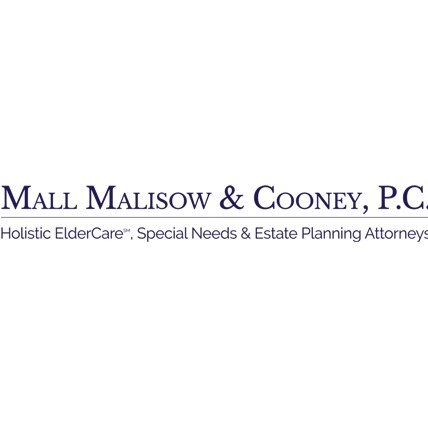Best Elder Abuse Law Lawyers in Farmington Hills
Share your needs with us, get contacted by law firms.
Free. Takes 2 min.
List of the best lawyers in Farmington Hills, United States
About Elder Abuse Law in Farmington Hills, United States
Elder abuse law in Farmington Hills, United States, is designed to protect the elderly from various forms of abuse and neglect. This area of law encompasses legal standards and procedures that address physical, emotional, and financial abuse, as well as neglect and exploitation. Such laws ensure that elderly individuals are safeguarded from harm and that perpetrators of abuse are held accountable for their actions. Lawyers specializing in elder abuse law can guide families and victims through the legal system to find protection and resolve disputes that affect the wellbeing of elderly individuals.
Why You May Need a Lawyer
There are several scenarios where having a lawyer is essential in elder abuse cases:
- If you suspect an elderly person is being physically or emotionally abused, professional legal advice can help evaluate the situation and seek remedy.
- Financial exploitation cases-such as fraud, misuse of funds, or deprivation of assets-often require the expertise of legal professionals to navigate the complexities involved.
- When dealing with allegations of neglect, a lawyer can assist in investigating complaints and ensuring appropriate measures are taken to protect the elderly individual.
- If an elderly person needs to establish legal guardianship or other protective measures, legal representation can facilitate the process.
- When filing for restraining orders or civil actions against an abuser, a lawyer can offer invaluable aid in securing a favorable outcome.
Local Laws Overview
Farmington Hills follows the state of Michigan's guidelines concerning elder abuse, which have specific provisions aimed at protecting seniors:
- The Michigan Penal Code includes penalties for assaults and neglect that affect seniors, categorized under vulnerable adult statutes.
- The Adult Protective Services (APS) Act facilitates the investigation of allegations and providing protection to those in need.
- The Michigan Social Welfare Act empowers legal interventions and resources for elders subjected to abuse.
- Financial institutions in Michigan are mandated to report suspected financial exploitation of adults.
- Certain professionals are required by law to report any suspicions of elder abuse, ensuring timely action and protection.
Frequently Asked Questions
What constitutes elder abuse?
Elder abuse includes physical abuse, emotional abuse, financial exploitation, neglect, and abandonment. It is any intentional or negligent act by a caregiver or other ally that causes harm or risk of harm to an elderly person.
Who is legally required to report elder abuse?
Mandatory reporters include healthcare providers, social workers, law enforcement officers, and other professionals who work with the elderly in Michigan.
How can I recognize signs of elder abuse?
Signs may include unexplained injuries, withdrawal from normal activities, sudden changes in financial situations, poor hygiene, and an expression of fear or anxiety towards a caregiver.
What should I do if I suspect elder abuse?
Contact local authorities or Adult Protective Services immediately. Document any evidence of abuse and consult a lawyer to understand legal options.
Can I visit legal aid societies for assistance with elder abuse cases?
Yes, local legal aid societies can provide initial consultations and guidance on elder abuse cases, often at reduced or no cost.
What role does Adult Protective Services play?
APS investigates reports of elder abuse, neglect, or exploitation and works to protect vulnerable adults by offering support services and intervention.
Can elder abuse occur in nursing homes?
Yes, nursing homes and assisted living facilities can be sites of abuse, making it critical to monitor care quality and report any negligence or mistreatment.
What legal actions can be taken against abusers?
Victims may pursue criminal charges, restraining orders, or civil lawsuits for damages depending on the case specifics.
How can I protect an elderly loved one from abuse?
Regularly monitoring their wellbeing, establishing a power of attorney, and staying informed about their financial and personal affairs can help mitigate risks of abuse.
What happens if elder abuse is not reported?
Failing to report can result in further harm to the elder. In situations where mandatory reporting is required, legal consequences may ensue for those who neglect their duty to report.
Additional Resources
For individuals seeking further assistance, the following resources may be helpful:
- Adult Protective Services - providing investigations and assistance for seniors.
- Local Legal Aid Organizations - offer legal guidance and representation for abuse victims.
- The National Center on Elder Abuse - provides information and support on elder abuse matters.
- Michigan Department of Health & Human Services - offers resources on elder care and protection.
Next Steps
If you believe you need legal assistance in an elder abuse case in Farmington Hills, consider the following steps:
- Document all relevant information about the situation including dates, times, and nature of the abuse.
- Contact a lawyer specializing in elder abuse law for a consultation to discuss your case and potential legal actions.
- Reach out to Adult Protective Services to report the suspected abuse and initiate protective measures.
- Consider joining support groups and connecting with advocacy organizations for emotional and educational support.
- Stay proactive in monitoring the situation and follow up on any legal or protective actions taken.
Lawzana helps you find the best lawyers and law firms in Farmington Hills through a curated and pre-screened list of qualified legal professionals. Our platform offers rankings and detailed profiles of attorneys and law firms, allowing you to compare based on practice areas, including Elder Abuse Law, experience, and client feedback.
Each profile includes a description of the firm's areas of practice, client reviews, team members and partners, year of establishment, spoken languages, office locations, contact information, social media presence, and any published articles or resources. Most firms on our platform speak English and are experienced in both local and international legal matters.
Get a quote from top-rated law firms in Farmington Hills, United States — quickly, securely, and without unnecessary hassle.
Disclaimer:
The information provided on this page is for general informational purposes only and does not constitute legal advice. While we strive to ensure the accuracy and relevance of the content, legal information may change over time, and interpretations of the law can vary. You should always consult with a qualified legal professional for advice specific to your situation.
We disclaim all liability for actions taken or not taken based on the content of this page. If you believe any information is incorrect or outdated, please contact us, and we will review and update it where appropriate.









